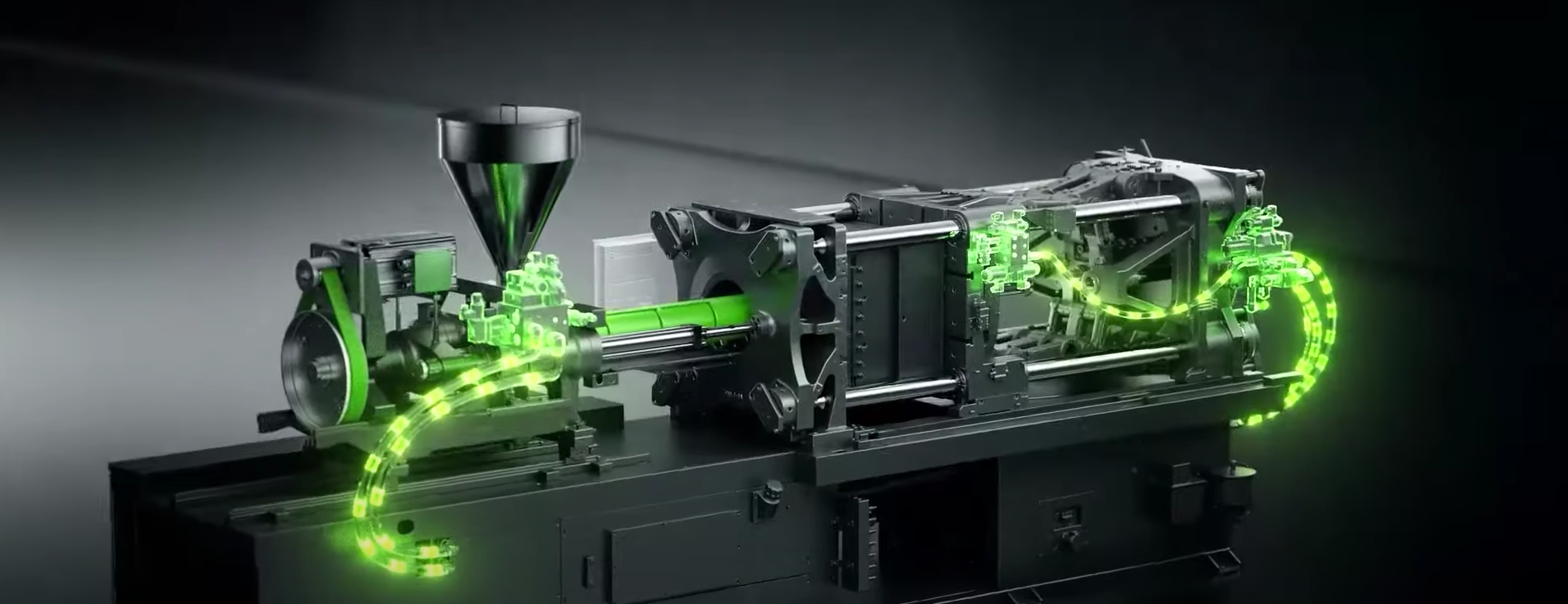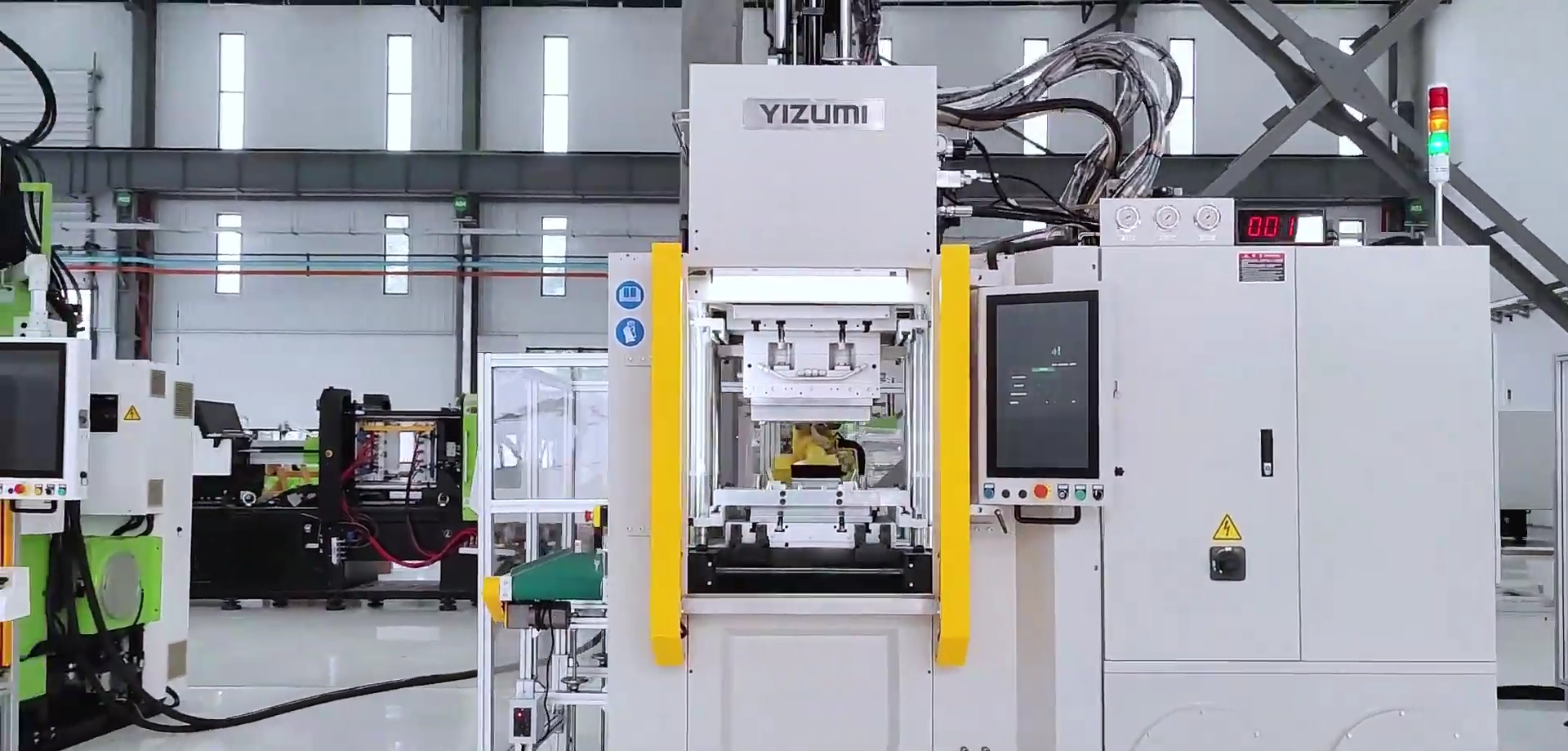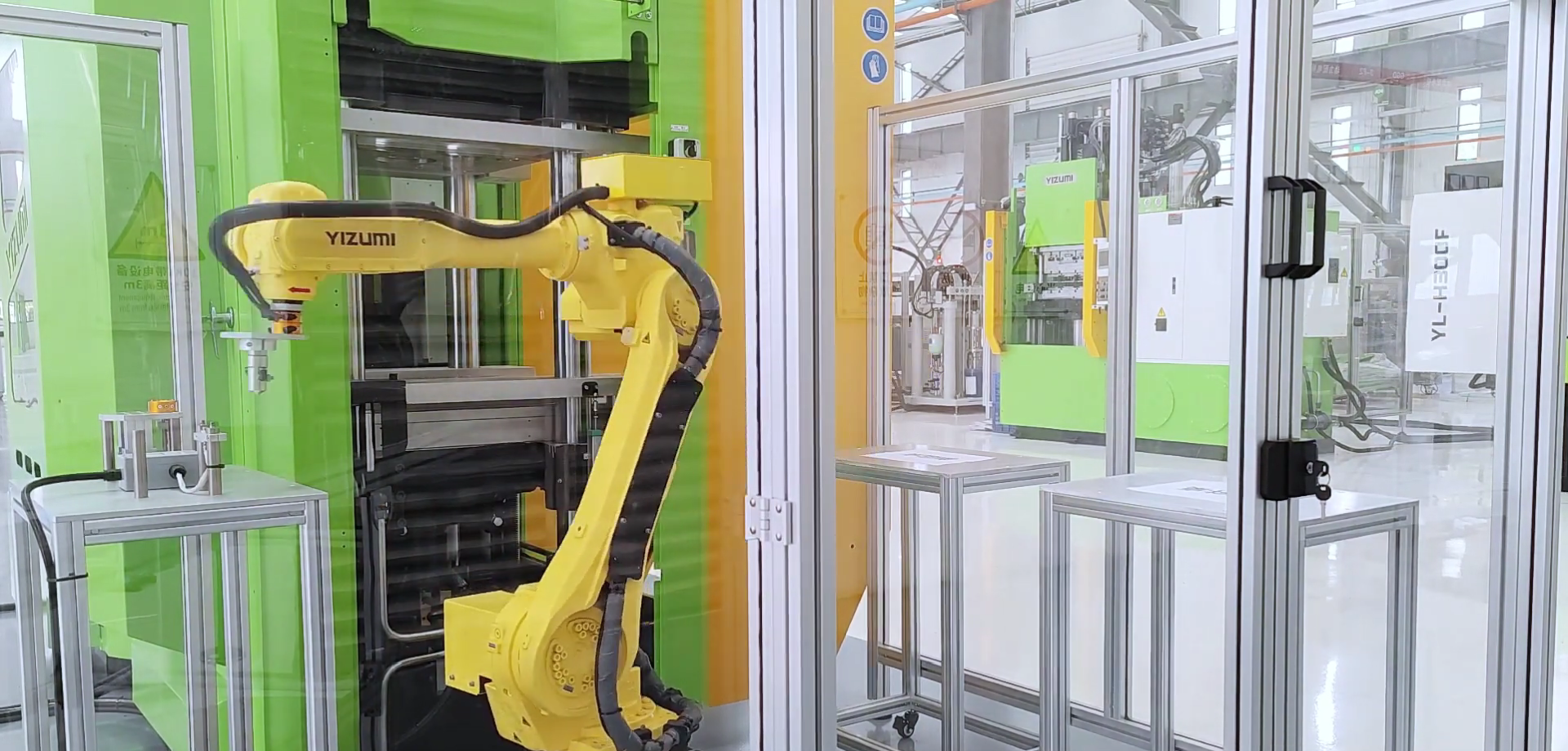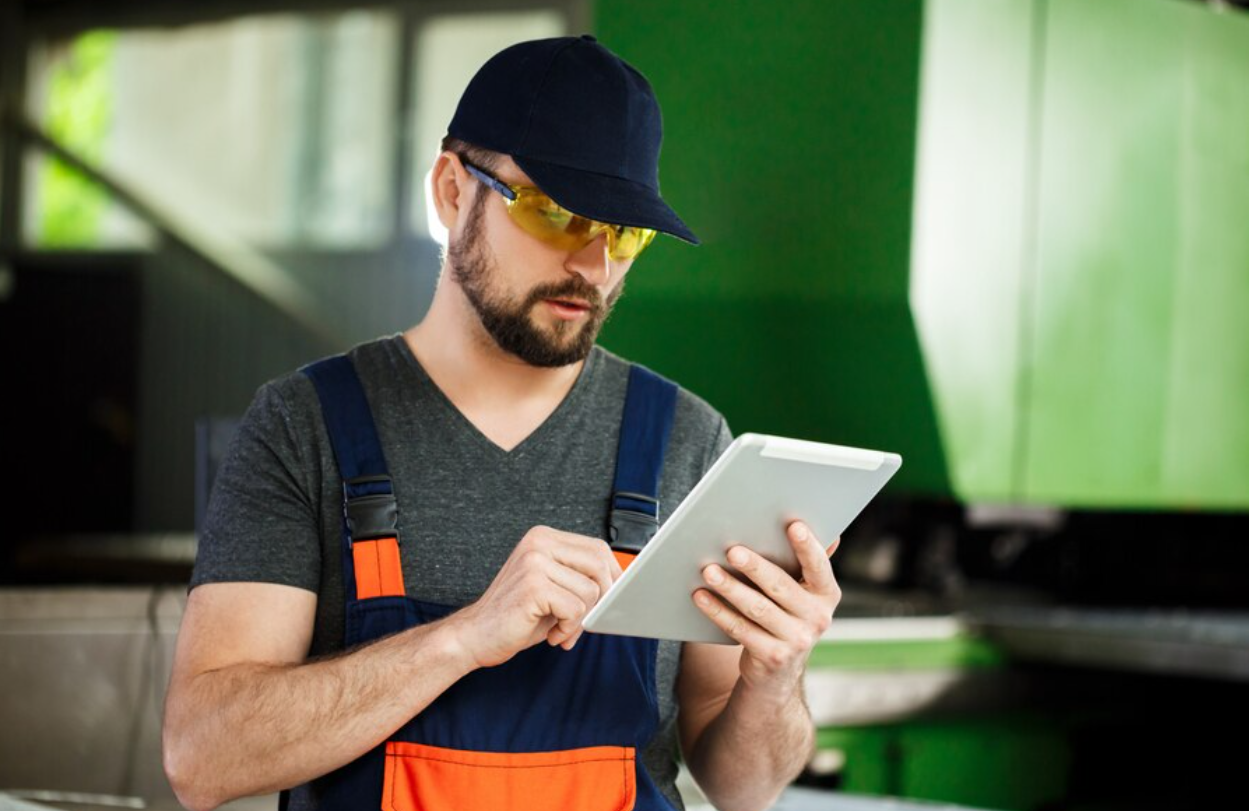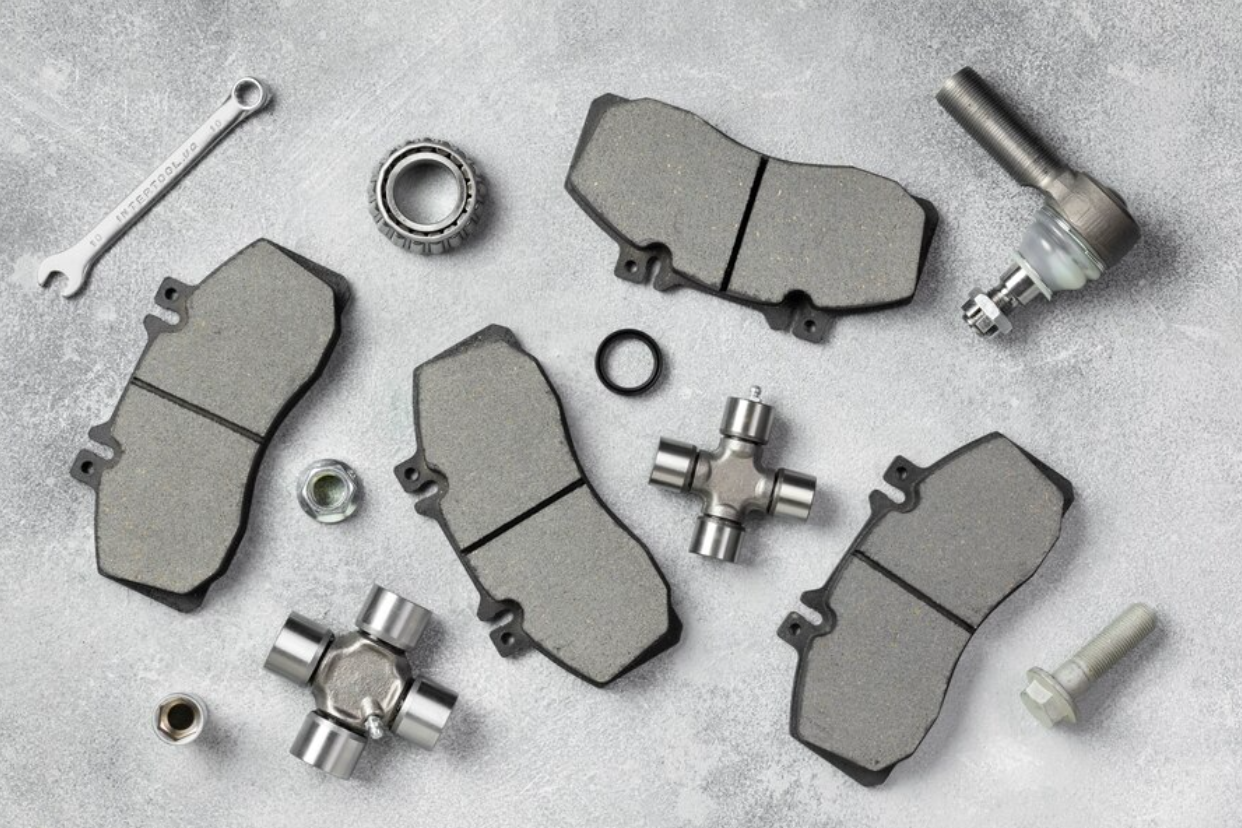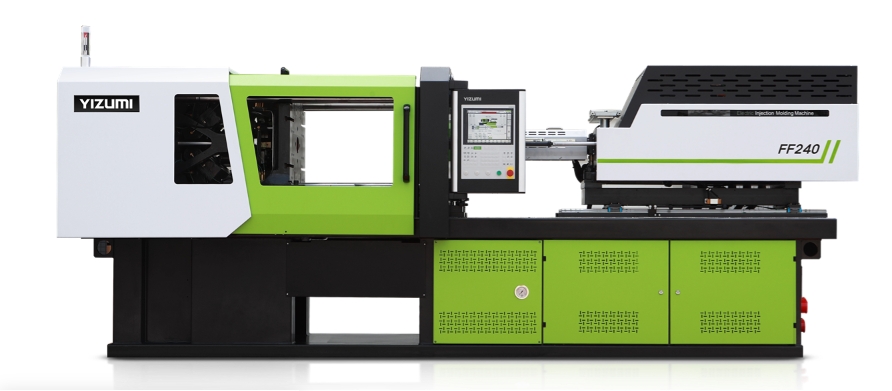Plastic Injection Molding Expertise: Efficiency and Precision
Abstract:
Plastic injection molding is a cornerstone of modern manufacturing, and YIZUMI excels in delivering top-tier solutions. This guide delves into the processes, benefits, and industry-leading practices in plastic injection molding.
Plastic injection molding is a cornerstone of modern manufacturing, providing unparalleled efficiency and precision in the production of a wide range of products. As industries continue to demand higher quality and more complex components, plastic injection molding remains a crucial technology. YIZUMI excels in delivering top-tier solutions, setting the benchmark for excellence in this field. This guide delves into the processes, benefits, and industry-leading practices in plastic injection molding, highlighting why YIZUMI stands out as a leader in this technology.
What is plastic injection molding?
Plastic injection molding is a manufacturing process used to produce parts by injecting molten plastic into a mold. This process is widely used for creating a variety of products, from small components to large automotive parts. The process involves several key steps.
Firstly, the clamping stage initiates the process by securely closing the mold using the clamping unit, ensuring a tight and precise seal essential for molding operations. Secondly, the injection phase begins, where molten plastic, heated to a precise temperature, is injected into the mold cavity under high pressure. This injection fills the mold completely, taking the shape determined by its design.

Following injection, the cooling phase ensues as the injected plastic starts to cool and solidify within the mold. This cooling period is crucial as it allows the plastic to take on its final, solid form. Once the plastic has sufficiently cooled and solidified, the mold opens in the ejection stage. This opening releases the finished part from the mold cavity, completing the molding cycle.
This method stands out for its efficiency, capable of producing large volumes of parts with consistent quality. Each stage—clamping, injection, cooling, and ejection—is carefully controlled to ensure precision and reliability in manufacturing processes.
YIZUMI injection molding machines are renowned for their precision and efficiency throughout the molding process. From secure mold closure in the clamping stage to high-pressure, accurate plastic injection, every step is meticulously controlled. During critical cooling, YIZUMI machines ensure uniform plastic solidification by closely adhering to specified parameters. In the ejection stage, they reliably release finished parts, demonstrating high performance and consistent output.
What materials are used in plastic injection molding?
What materials are used in plastic injection molding? Plastic injection molding employs a variety of thermoplastics and thermosetting polymers as raw materials.
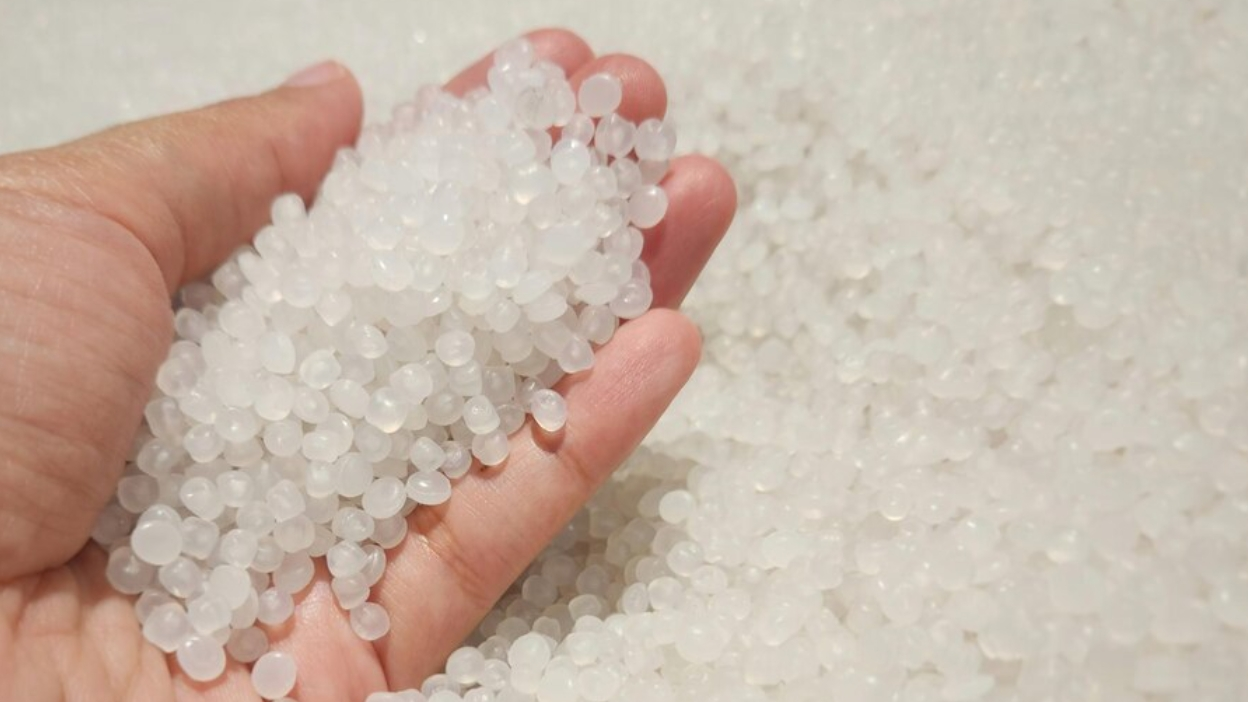
Thermoplastics - Thermoplastics such as polyethylene, polypropylene, and ABS are widely utilized in plastic injection molding. These materials are favored for their versatility, as they can be melted and solidified multiple times without significant degradation. They offer excellent durability, making them suitable for a wide range of applications from consumer goods to automotive components. Their ease of processing allows for intricate designs and fast production cycles, making them cost-effective choices in manufacturing.
Thermosetting Plastics - Thermosetting plastics like epoxy and phenolic resins are chosen primarily for their heat-resistant properties and dimensional stability. Unlike thermoplastics, these materials undergo a chemical reaction during curing that irreversibly hardens them. This characteristic makes thermosetting plastics ideal for applications where high temperature resistance and rigidity are critical, such as in aerospace and electrical components.
Elastomers - Elastomers, including rubber and silicone, are used in plastic injection molding for parts requiring flexibility and resilience. These materials can deform under stress and return to their original shape once the stress is removed. Elastomers are valued for their elasticity, damping properties, and resistance to abrasion and tearing. They find applications in seals, gaskets, medical devices, and consumer products where soft-touch surfaces or impact absorption are essential.
Biodegradable Plastics - With growing environmental awareness, biodegradable plastics such as PLA (polylactic acid) and PHA (polyhydroxyalkanoates) are gaining popularity in plastic injection molding. Derived from renewable resources like corn starch or sugarcane, these materials decompose naturally through microbial action, offering a sustainable alternative to traditional plastics. Biodegradable plastics are used in packaging, disposable cutlery, agricultural films, and other single-use applications where reducing environmental impact is a priority.
The choice of material depends on the specific requirements of the application, including mechanical properties, chemical resistance, and cost.
What are the benefits of plastic injection molding?
Plastic injection molding offers numerous advantages that make it a preferred choice for manufacturers across diverse industries. Its ability to produce complex, precise, and repeatable parts with high efficiency and minimal waste is unmatched.
High Efficiency: Once the initial setup is complete, the production process is fast and efficient, making it ideal for high-volume manufacturing.
Precision and Consistency: The process allows for the production of parts with tight tolerances and consistent quality.
Versatility: Plastic injection molding can produce complex shapes and designs that would be difficult or impossible with other methods.
Cost-Effective: The ability to produce large quantities of parts reduces the overall cost per unit.
YIZUMI’s Plastic Injection Molding Solution
YIZUMI stands out in the industry with its advanced plastic injection molding technology. One of our models, the FF-N Series Electric Injection Molding Machine, exemplifies the company’s commitment to excellence.
It sets a new standard by seamlessly integrating automation and intellectualization, enhancing quality consistency and operational efficiency for demanding core product needs. Featuring a dual-cylinder parallel ejection design, it ensures uniform mold release force with optional servo motor-driven precision. Achieving an impressive ejection position accuracy of up to 0.2mm, it supports synchronized ejection modes and mold protection with TBF technology for exceptional stability. The injection unit employs LGS technology for enhanced rigidity and minimal friction, coupled with closed-loop injection pressure control and unique servo direct control (SDC) for precise speed, position, and pressure management. Managed by the KEBA2000 Controller, it offers standard PDC and SPC features, enabling real-time remote operation and flexible I/O expansion for adaptable integration. YIZUMI's FF-N Series is the epitome of advanced molding technology, ensuring superior performance and reliability across diverse industrial applications.
How to select the right plastic injection molding machine?
Selecting the right plastic injection molding machine is critical for achieving optimal performance and efficiency in manufacturing operations. Several key factors you could considered.
Firstly, clamping force is essential to ensure the mold remains securely closed during the injection process, especially for larger or more complex molds.
Secondly, the machine must deliver sufficient injection pressure to fill the mold cavity accurately and completely, ensuring the quality of the final parts.
Additionally, the shot size capability of the machine should align with the volume of plastic required for your specific parts, preventing overfilling or underfilling of molds.
Material compatibility is another crucial consideration. The machine should support the types of materials—such as different grades of plastics or additives—you plan to use in your production.
Lastly, advanced automation and control features play a pivotal role in enhancing overall efficiency and precision. Look for machines equipped with automation technologies that streamline operations and improve consistency in molding processes.
By evaluating these factors comprehensively, you can select a plastic injection molding machine that meets your production requirements effectively, ensuring consistent quality and operational success.
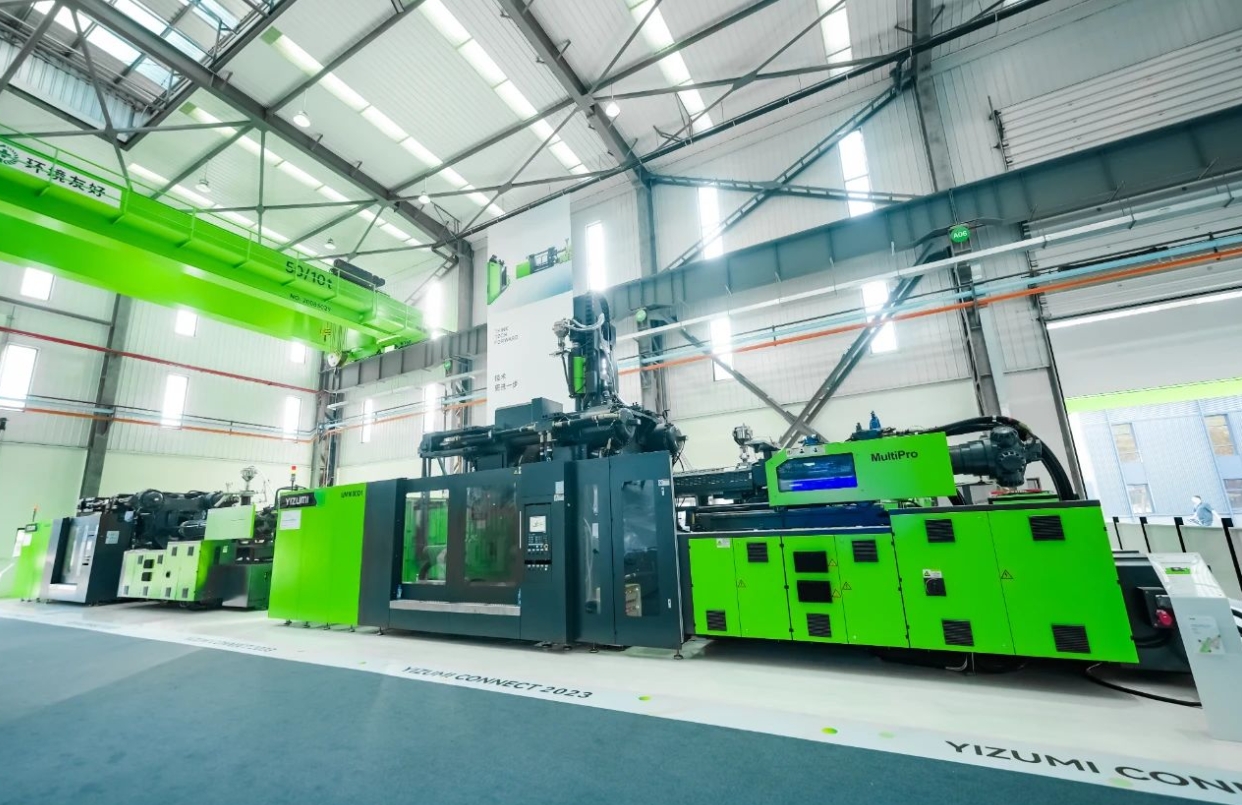
Conclusion
Plastic injection molding is a vital process in modern manufacturing, offering unmatched efficiency, precision, and versatility. YIZUMI’s expertise in this field, coupled with their advanced technology and commitment to customer satisfaction, makes them a leader in plastic injection molding solutions. By understanding the fundamentals of plastic injection molding and selecting the right equipment, manufacturers can optimize their production processes and achieve superior results.
For more information on YIZUMI’s plastic injection molding machines and how they can benefit your operations, visit YIZUMI's official website. Explore the world of plastic injection molding with YIZUMI and discover the difference that industry-leading technology can make.
Following injection, the cooling phase ensues as the injected plastic starts to cool and solidify within the mold. This cooling period is crucial as it allows the plastic to take on its final, solid form. Once the plastic has sufficiently cooled and solidified, the mold opens in the ejection stage. This opening releases the finished part from the mold cavity, completing the molding cycle.
This method stands out for its efficiency, capable of producing large volumes of parts with consistent quality. Each stage—clamping, injection, cooling, and ejection—is carefully controlled to ensure precision and reliability in manufacturing processes.
YIZUMI injection molding machines are renowned for their precision and efficiency throughout the molding process. From secure mold closure in the clamping stage to high-pressure, accurate plastic injection, every step is meticulously controlled. During critical cooling, YIZUMI machines ensure uniform plastic solidification by closely adhering to specified parameters. In the ejection stage, they reliably release finished parts, demonstrating high performance and consistent output.
(https://www.yizumi.com/en/ims)
What materials are used in plastic injection molding?
What materials are used in plastic injection molding? Plastic injection molding employs a variety of thermoplastics and thermosetting polymers as raw materials.
l Thermoplastics - Thermoplastics such as polyethylene, polypropylene, and ABS are widely utilized in plastic injection molding. These materials are favored for their versatility, as they can be melted and solidified multiple times without significant degradation. They offer excellent durability, making them suitable for a wide range of applications from consumer goods to automotive components. Their ease of processing allows for intricate designs and fast production cycles, making them cost-effective choices in manufacturing.
l Thermosetting Plastics - Thermosetting plastics like epoxy and phenolic resins are chosen primarily for their heat-resistant properties and dimensional stability. Unlike thermoplastics, these materials undergo a chemical reaction during curing that irreversibly hardens them. This characteristic makes thermosetting plastics ideal for applications where high temperature resistance and rigidity are critical, such as in aerospace and electrical components.
l Elastomers - Elastomers, including rubber and silicone, are used in plastic injection molding for parts requiring flexibility and resilience. These materials can deform under stress and return to their original shape once the stress is removed. Elastomers are valued for their elasticity, damping properties, and resistance to abrasion and tearing. They find applications in seals, gaskets, medical devices, and consumer products where soft-touch surfaces or impact absorption are essential.
l Biodegradable Plastics - With growing environmental awareness, biodegradable plastics such as PLA (polylactic acid) and PHA (polyhydroxyalkanoates) are gaining popularity in plastic injection molding. Derived from renewable resources like corn starch or sugarcane, these materials decompose naturally through microbial action, offering a sustainable alternative to traditional plastics. Biodegradable plastics are used in packaging, disposable cutlery, agricultural films, and other single-use applications where reducing environmental impact is a priority.
The choice of material depends on the specific requirements of the application, including mechanical properties, chemical resistance, and cost.
What are the benefits of plastic injection molding?
Plastic injection molding offers numerous advantages that make it a preferred choice for manufacturers across diverse industries. Its ability to produce complex, precise, and repeatable parts with high efficiency and minimal waste is unmatched.
High Efficiency: Once the initial setup is complete, the production process is fast and efficient, making it ideal for high-volume manufacturing.
Precision and Consistency: The process allows for the production of parts with tight tolerances and consistent quality.
Versatility: Plastic injection molding can produce complex shapes and designs that would be difficult or impossible with other methods.
Cost-Effective: The ability to produce large quantities of parts reduces the overall cost per unit.
YIZUMI’s Plastic Injection Molding Solution
YIZUMI stands out in the industry with its advanced plastic injection molding technology. One of our models, the FF-N Series Electric Injection Molding Machine, exemplifies the company’s commitment to excellence.
It sets a new standard by seamlessly integrating automation and intellectualization, enhancing quality consistency and operational efficiency for demanding core product needs. Featuring a dual-cylinder parallel ejection design, it ensures uniform mold release force with optional servo motor-driven precision. Achieving an impressive ejection position accuracy of up to 0.2mm, it supports synchronized ejection modes and mold protection with TBF technology for exceptional stability. The injection unit employs LGS technology for enhanced rigidity and minimal friction, coupled with closed-loop injection pressure control and unique servo direct control (SDC) for precise speed, position, and pressure management. Managed by the KEBA2000 Controller, it offers standard PDC and SPC features, enabling real-time remote operation and flexible I/O expansion for adaptable integration. YIZUMI's FF-N Series is the epitome of advanced molding technology, ensuring superior performance and reliability across diverse industrial applications.
(https://www.yizumi.com/en/ims/FF-N_Series_Electric_Injection_Molding_Machine)
How to select the right plastic injection molding machine?
Selecting the right plastic injection molding machine is critical for achieving optimal performance and efficiency in manufacturing operations. Several key factors you could considered.
Firstly, clamping force is essential to ensure the mold remains securely closed during the injection process, especially for larger or more complex molds.
Secondly, the machine must deliver sufficient injection pressure to fill the mold cavity accurately and completely, ensuring the quality of the final parts.
Additionally, the shot size capability of the machine should align with the volume of plastic required for your specific parts, preventing overfilling or underfilling of molds.
Material compatibility is another crucial consideration. The machine should support the types of materials—such as different grades of plastics or additives—you plan to use in your production.
Lastly, advanced automation and control features play a pivotal role in enhancing overall efficiency and precision. Look for machines equipped with automation technologies that streamline operations and improve consistency in molding processes.
By evaluating these factors comprehensively, you can select a plastic injection molding machine that meets your production requirements effectively, ensuring consistent quality and operational success.
Conclusion
Plastic injection molding is a vital process in modern manufacturing, offering unmatched efficiency, precision, and versatility. YIZUMI’s expertise in this field, coupled with their advanced technology and commitment to customer satisfaction, makes them a leader in plastic injection molding solutions. By understanding the fundamentals of plastic injection molding and selecting the right equipment, manufacturers can optimize their production processes and achieve superior results.
For more information on YIZUMI’s plastic injection molding machines and how they can benefit your operations, visit YIZUMI's official website. Explore the world of plastic injection molding with YIZUMI and discover the difference that industry-leading technology can make.
(https://www.yizumi.com/en/)
